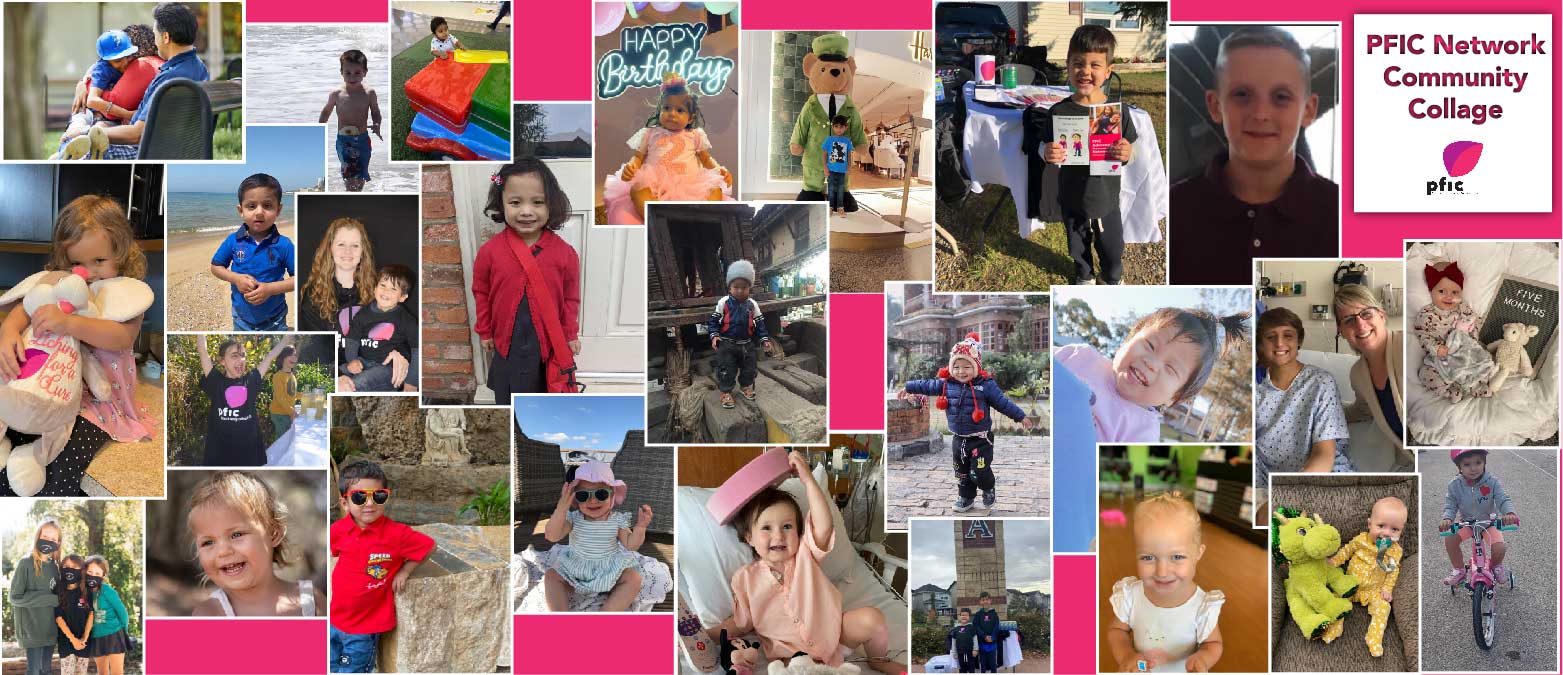Celebrating One Year of Project IMPACT!
It’s hard to believe that a whole year has passed since we launched Project IMPACT. The time has flown by, and together we’ve already achieved so much.
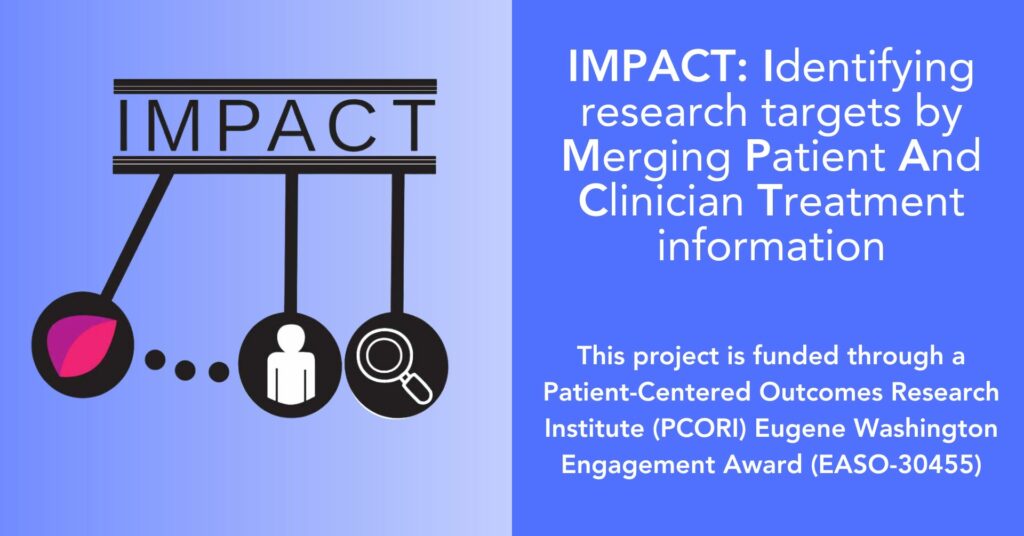
The inspiration for this project came from a desire for change—a need for better understanding of the treatments available to us, how to choose between them, and when to use them. We started Project IMPACT to explore these important questions, working as partners—patients, advocates, doctors, and researchers—all united on the same team.
As we enter our second year, there’s still a lot of work ahead. But we’re excited to continue making progress, improving treatment paths for those living with PFIC and related conditions worldwide. We hope you’ll join us on this journey!
How It Started
At our 2022 Family & Scientific Conference Roundtable, we had in-depth discussions about the challenges our community faces: Receiving a PFIC diagnosis brings a lot of uncertainty. Scientific understanding of PFIC is limited, treatment options are few, and doctors lack a clear blueprint for our care. Consequently, many of our most important questions often go unanswered…
How can I delay liver transplant as long as possible?
How will a biliary diversion surgery impact my child’s quality of life?
What are the best next steps for me and my treatment journey?
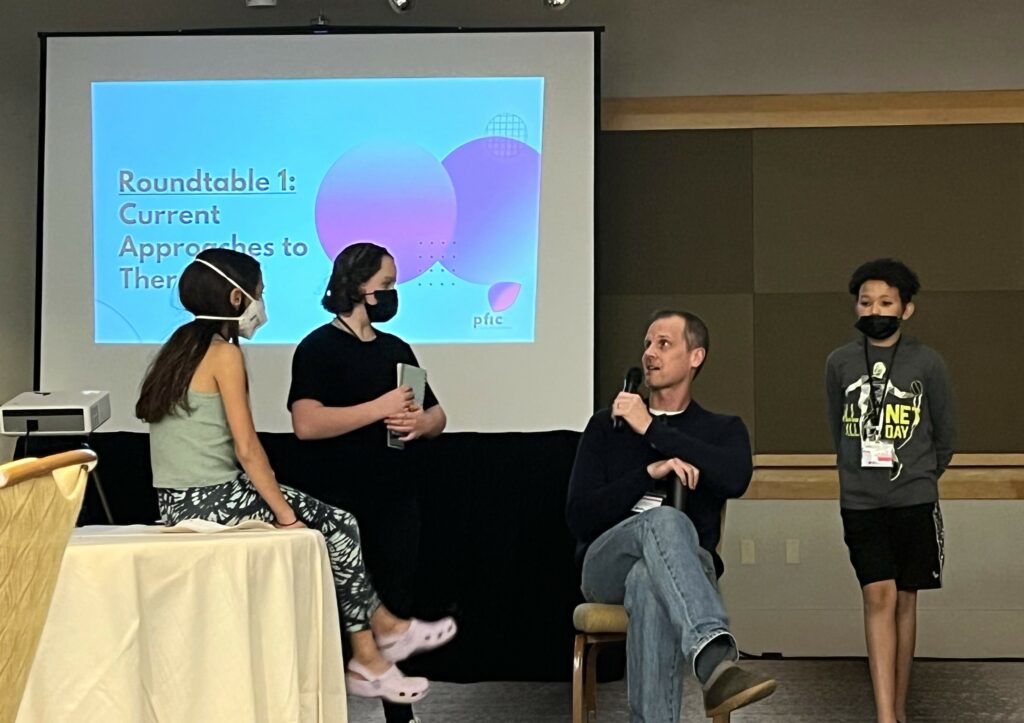
These challenges are common across many rare diseases, which researchers have only recently started to understand better. However, academic institutions, government agencies, and nonprofit organizations are all working actively to address these issues in various ways.
The Patient-Centered Outcomes Research Institute (PCORI) is a U.S.-based government-sponsored nonprofit that funds academic institutions and organizations like the PFIC Network to address knowledge gaps in clinical management for various conditions. In the fall of 2022, we applied for PCORI’s Eugene Washington Engagement Award for Small Organizations. We were thrilled to be selected and received a $250,000 award for our project, IMPACT, in July 2023!
*Clinical management refers to the process of taking care of a patient’s health and medical needs, including actions to diagnose, monitor, and treat a condition.
Making a Difference Together
Our vision for this two-year project was to unite our incredible community of patients, parents, clinicians, and researchers to improve clinical management in PFIC. We aimed to collect and share patients’ and clinicians’ treatment experiences, as well as their most pressing unanswered questions, to guide future research efforts. This goal inspired us to name the project “IMPACT,” which stands for “Identifying research targets by Merging Patient And Clinician Treatment information.”
We kicked off the project with virtual learning modules to create a shared foundation of knowledge on how we can collaborate to advance research in PFIC. (You can still access the modules here!) Additionally, we started hosting focus group calls on Zoom every other month. These sessions allowed us to get to know each other and discuss what we learned from the modules.
Partnering in Research
In IMPACT Modules 1 and 2, we explored how patients, clinicians, and researchers can collaborate as partners to enhance the delivery of care and co-design research projects.
During our focus group meetings, we discussed the concept of partnership and identified the unique barriers and solutions to fostering effective partnerships in PFIC. This discussion aimed to guide future research teams working with patients.
“The term ‘research partner’, includes individuals who have experience living with, caring for, advocating for, and/or treating those with a condition. These individuals are included on research teams to share their knowledge and perspectives to ultimately enhance the relevance and use of the research.”
PCORI’s Stakeholders, Patient Centered Outcomes Research Institute
A key principle of partnership that emerged was the importance of shared knowledge. For patients and researchers to be effective partners, they must have a mutual understanding of the research process, the disease and treatments being studied, and the best ways to collaborate. This principle inspired us to create the IMPACT Treatment Experience App.
The IMPACT Treatment Experience App
Before the project started, we identified a significant gap: a comprehensive resource on treatments. Patients and families need a shared understanding of available treatments to engage in meaningful discussions and make informed decisions with clinicians and researchers.
Over the past year, we dedicated time in our focus group calls to address this issue. Together, patients, parents, clinicians, and researchers collaborated to design the IMPACT Treatment Experience App (TEA), which is now available here!
The TEA is very unique. Not only does it provide easy-to-understand information about different medications, surgeries, vitamins and nutritional interventions used to treat PFIC; the TEA also includes information about patients’ experiences with them!
What makes the TEA even more special is that it is a dynamic resource. It gathers patient experiences through an embedded survey, and PFIC Network staff review and update the app with new information every two weeks.
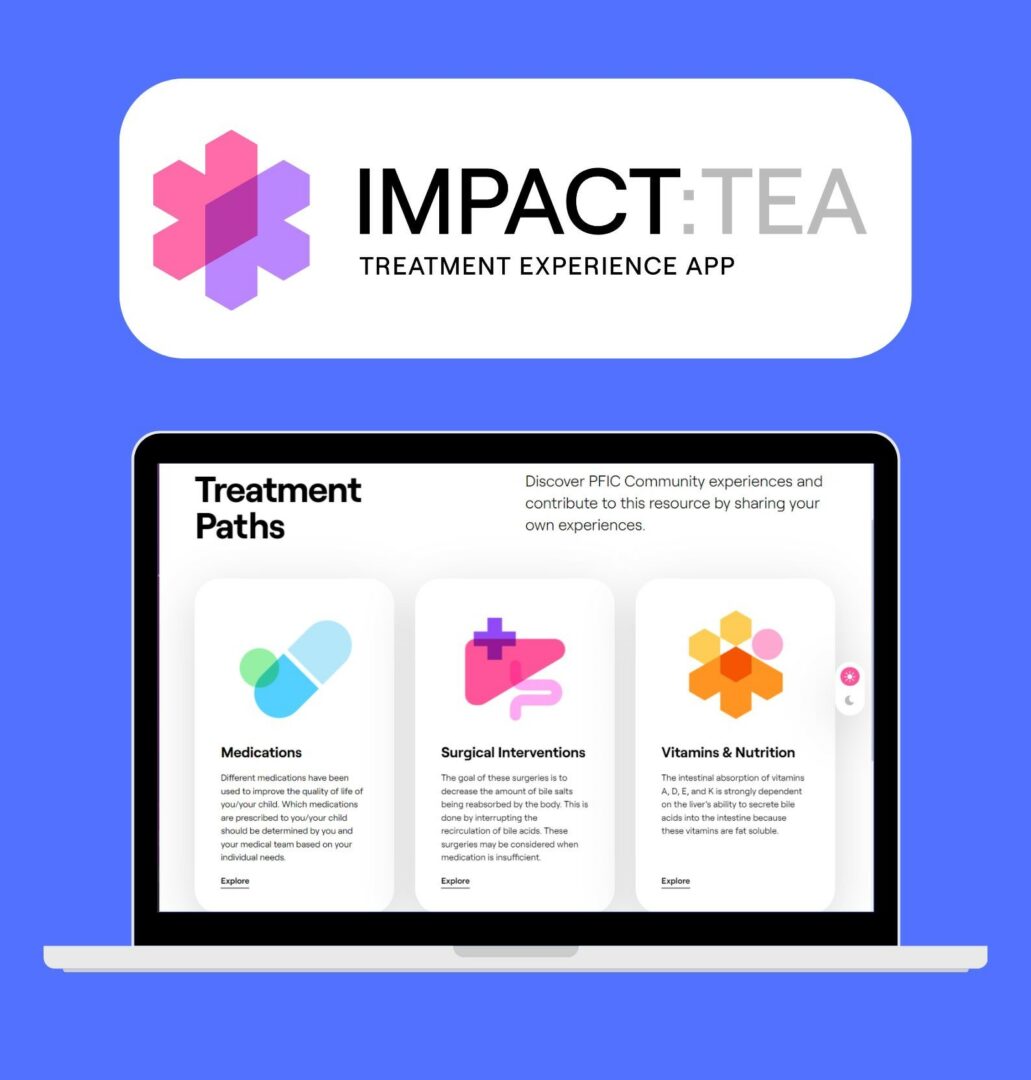
Many thanks to Paolo Catalla and his team at Semi:Formal studios for bringing our community’s vision for the app to life.
Since the TEA just got launched, there are still some treatments in the TEA that don’t have much information. This is where we need our community’s help to make this as comprehensive a tool as possible! If you or your child had a treatment for PFIC, whether it’s a surgery, medication, or vitamins or nutrition interventions, please consider taking a moment to share your experience with it in the TEA. Note: The survey does not ask for any personally identifiable information – it is totally anonymous. 🙂
From Experiences to Answers
We will also review the treatment experiences shared through the TEA survey to guide our research efforts.
In our discussions, we have already begun to identify some priority areas, including what outcomes matter most to patients when choosing a treatment. Reducing itch, avoiding transplant, improving quality of life, quality of sleep, mental health, and minimizing financial burden were all identified as important outcomes for treatments in PFIC.
Understanding which outcomes are most important to us will help in making informed treatment choices. For example, if reducing itch is a priority, we might investigate which treatments are most effective at alleviating itch. This could lead to designing a research study to gather data-driven answers, which can be shared with patients and doctors worldwide to support their treatment decisions.
Looking Ahead
Now that the app is complete, we will keep our focus group calls going every other month over the next year. These calls will focus on discussing treatment experiences and working toward compiling an official list of research priorities, with the goal of finalizing it by July 2025.
IMPACT is incredibly important to us, and we want everyone in our community to be involved. Your voice matters! If you haven’t participated in IMPACT yet, there’s still time. You can join any of our future modules and focus group meetings without having done previous activities. (We still encourage you to check out Modules 1-4 first, available here!)
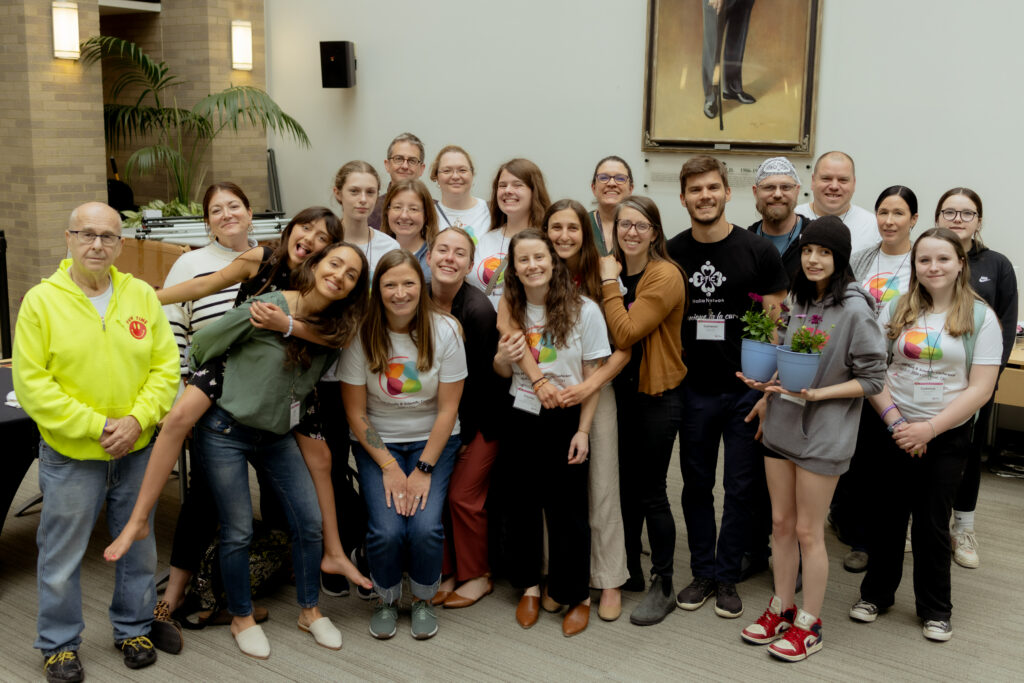
A HUGE thank you to everyone who has contributed to IMPACT so far. Your input in the modules and discussions has been invaluable and demonstrates the amazing things we can achieve when we work together.
We are constantly inspired by our community’s hope, passion, and commitment to improving the lives of patients and families living with PFIC. Let’s keep making an impact together!
